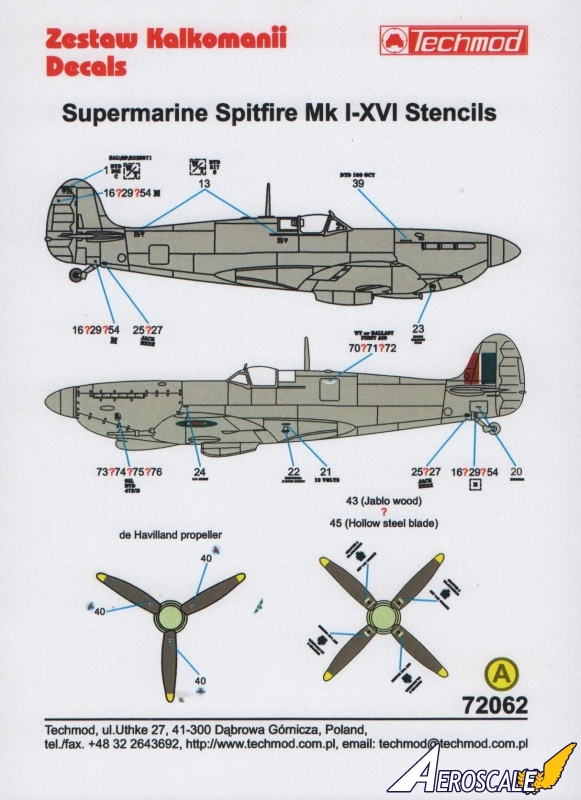Oops! Someone at Techmod needs new glasses. According to these stencils Spitfires were painted with Material Specification DTD 305 - 30 ton steel tubes (suitable for welding).
At the beginning of the war there were two finishes used for camouflage, DTD 308 - matt cellulose and DTD 314 matt synthetic. The two finishes were not to be mixed together or applied over each other. That is, DTD 308 could only be painted over with a cellulose paint and DTD 314 with a synthetic paint. For this reason all components were required to have the material specification of the paint stenciled on them in Night (black). Underneath the letter 'C' if it was a cellulose paint or 'S' if it was a synthetic paint. DTD 517 was synthetic, quick drying, paint introduced later in the war. You would not have found it on Mk I and II Spitfires during the Battle of Britain for example. Because fabric areas (elevators, rudders etc.) were painted with cellulose dope DTD 308 was still used on these components and they were stenciled accordingly. Personally, they are too small for me to care very much but some people are sticklers for such small details.
Gas patches were either painted on (no red boarder) or came as a square of material that was stuck down with red doped tape.




